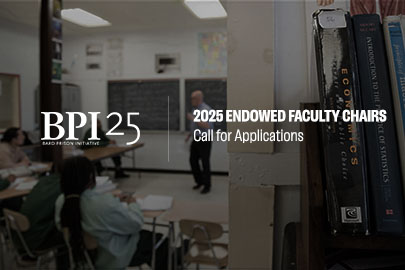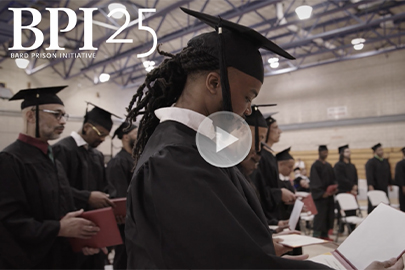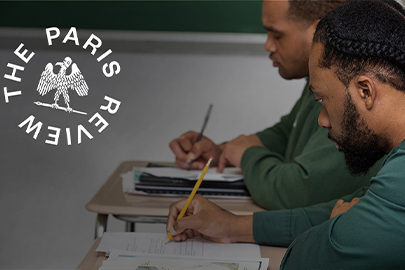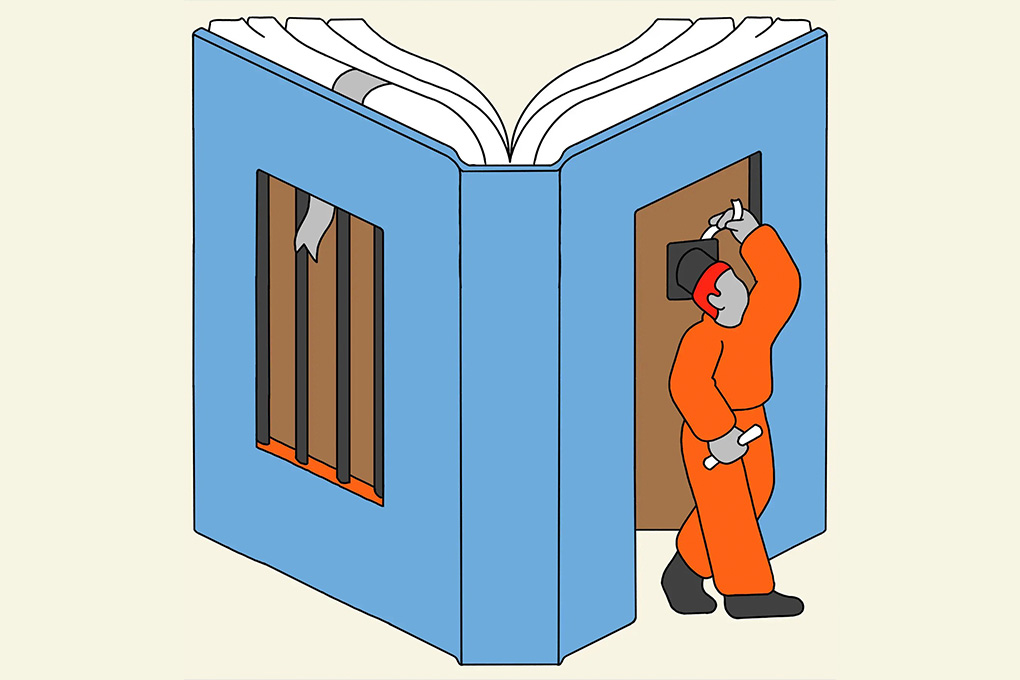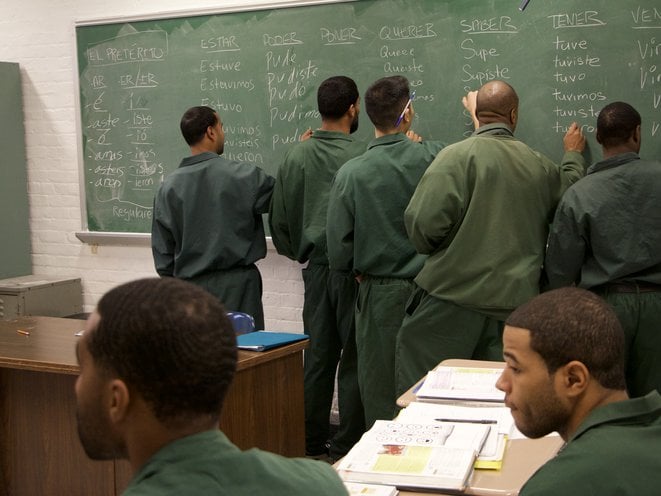
Bard Prison Initiative (BPI) students conjugate Spanish verbs at Eastern New York Correctional Facility. SKIFF MOUNTAIN FILMS
For nearly 20 years, a program run by Bard College has given hundreds of prisoners in New York State access to a college education. The Bard Prison Initiative gives people a chance to take the same courses offered at Bard’s main campus, and finish the program with the same degrees, all expenses paid. Now, the new documentary series College Behind Bars follows several students as they manage classes and homework amid life in prison.
Directed by Lynn Novick and produced by her longtime collaborator, Ken Burns, the series provides a rare look at prison life, and how the rigor and structure of education can help people survive their time there and thrive once they get out.
College enrollment in United States prison facilities expanded after the Higher Education Act was passed in 1965, as inmates became eligible for federal grants if they could not pay for classes on their own. But that all but disappeared in the mid-’90s, after the federal Crime Bill barred incarcerated people from receiving any federal funding for education. Since then, the handful of programs currently operating, including BPI, must rely on private donations to provide college courses to a tiny fraction of people in the prison system.
“College education was commonplace, part of the idea of what prison was for. And pretty much overnight, when that federal funding was removed almost all the programs just stopped operating,” said Novick. “They went from about 800 programs to fewer than 10.”
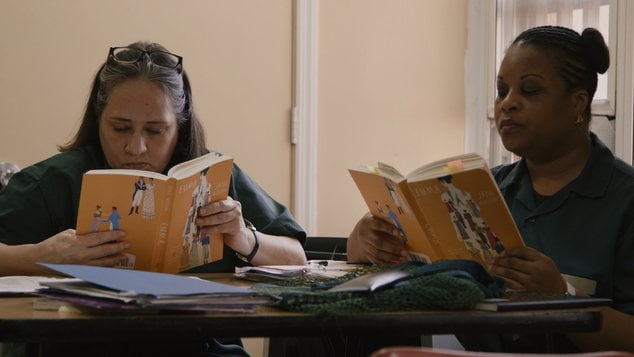
Bard Prison Initiative (BPI) students in a literature seminar at Taconic Correctional Facility. SKIFF MOUNTAIN FILMS
College Behind Bars follows two groups of BPI students: men held at Eastern Correctional Facility in Napanoch, NY, and women at the Taconic Correctional Facility in Westchester County. For Dyjuan Tatro, and most of the incarcerated students featured in the series, this was the first time they had ever considered higher education as an option.
“For me, the opportunity to go to college was a way to do something productive with my time in prison, but even more importantly, to prepare myself to re-enter society,” said Tatro.
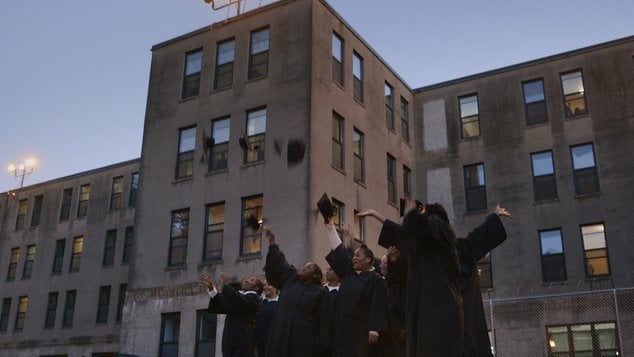
Bard Prison Initiative (BPI) graduates celebrate at Taconic Correctional Facility in June, 2017. SKIFF MOUNTAIN FILMS
The documentary has its share of heartwarming moments, like when the BPI debate team manages to defeat Harvard University’s in a triumph fit for a sports movie. But it also highlights tensions around the program—early on, one student notes that many of the prison guards do not have college degrees themselves; and while another incarcerated student was thankful to get the opportunity to take college courses in prison, her mother expresses frustration that she had to pay for her other children to get their degrees.
“I think she’s frustrated with the high cost of education and lack of access, and it’s unconscionable how much ordinary people have to pay for higher education, so that lack of access doesn’t feel fair,” said Novick.
College Behind Bars premieres on PBS on Monday, Nov. 25 at 9 p.m. EST.
